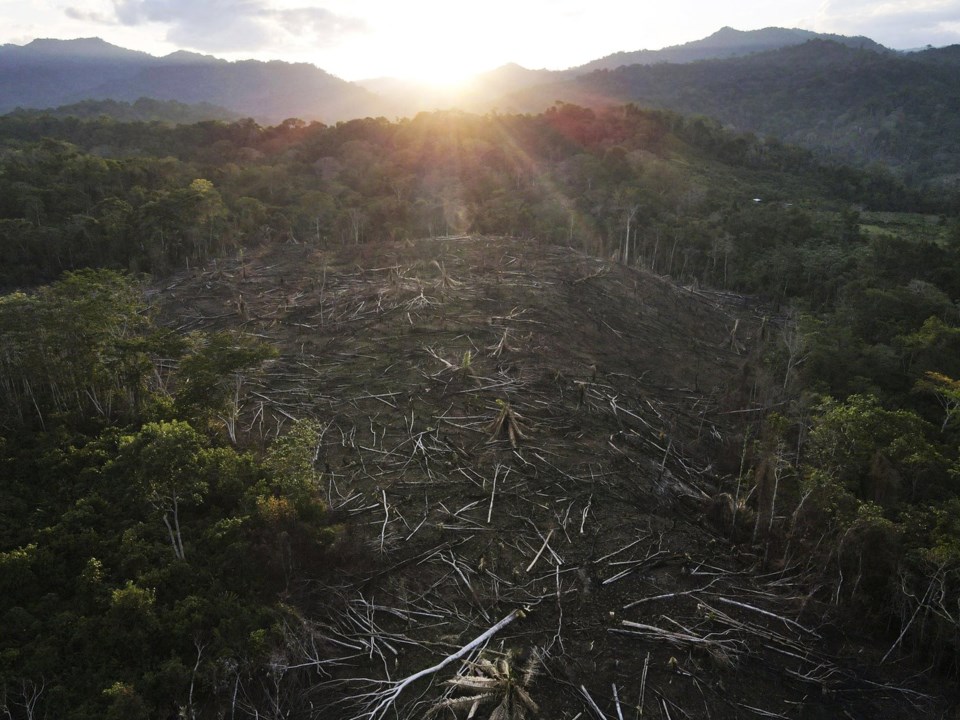An Indigenous community in the Peruvian Amazon is celebrating a legal victory in the latest stage of its attempt to .
The Puerto Franco community of the Kichwa tribe say their territory was stolen to form the Cordillera Azul National Park in 2001. Companies such as Shell and TotalEnergies spent tens of millions of dollars on to counter . The Kichwas got next to nothing and were left in hunger, despite a 2022 Associated Press investigation finding that it was almost certainly their ancestral territory, by the terms of a convention Peru signed decades ago.
The community celebrated a dramatic legal victory last year, when provincial Judge Simona del Socorro Torres Sánchez ruled that creating the park without their consent had violated their rights. Authorities were ordered to grant them legal ownership and proceeds from the carbon credit sales.
But that was quickly overturned by an appeals court in a move that some legal experts called questionable.
Judge Sánchez has now ruled once again in the Kichwas’ favor, however, making a new order that the Kichwas should get their land back and benefit from the carbon credit sales. She found the Kichwas were Indigenous, and their territorial rights counted for more than the amount of time that’s passed.
The Peruvian government and a nonprofit which runs the park, CIMA, have argued that too much time has passed for the Kichwas to make a claim, and that they are not truly Indigenous people. Peruvian authorities have also argued in legal filings that the community didn’t object to the park’s creation in 2001.
Kichwa leader Inocente Sangama said he was “outraged” at the claim they were not Indigenous people. “Who said an Indigenous person cannot wear clothes?”
“The justice system has proved us right,” he said. “We feel pride and happiness.”
The AP emailed the Peruvian government but did not immediately receive a reply. Jorge Aliaga Arauco, a director at CIMA, said by email that they would appeal the decision and were on solid evidential ground. The nonprofit says proceeds from the carbon credit project help protect the ancient rainforest, one of Peru’s most pristine and biodiverse environments.
The case may be moving towards a conclusion.
Juan Carlos Díaz, a constitutional lawyer at Pontifical Catholic University of Peru, told the AP that the ruling could be appealed before a superior court. If the Kichwas win there, the decision would be final, he said. Should the Kichwas lose, they would have one last right of appeal, to a Constitutional Court in Lima, but the government doesn't have that last recourse.
—�Ĕ�Ĕ-
The Associated Press’ climate and environmental coverage receives financial support from multiple private foundations. AP is solely responsible for all content. Find AP’s for working with philanthropies, a list of supporters and funded coverage areas at .
Ed Davey, The Associated Press


